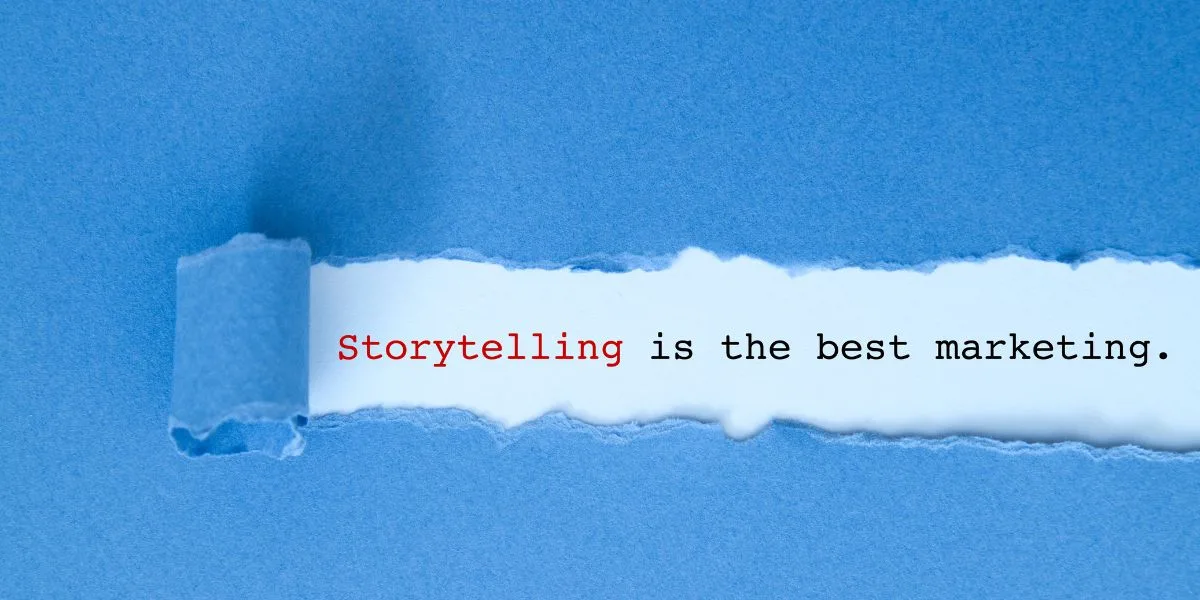Ready to test the waters and get started with dinner seminar marketing to attract and connect with more prospects? With over 1 million events completed, our team has the experience and know-how to ensure success. We’ve got you covered, from preparation for the event to game day necessities and the best follow-up procedures. Keep reading for all the dinner seminar marketing tips and tricks you need to make your first or fiftieth dinner event into your highest-yielding investment.
Before Your Dinner Event – The Prep
Before any successful seminar, the magic is in the planning. Setting the stage ahead of time can mean the difference between a room full of warm prospects and a wasted evening. From your topic to the venue, each choice plays a role in your results. The more intentional your preparation, the more you’ll boost attendance, engagement, and conversions. By following tested best practices, you can walk into your event with confidence—and walk out with appointments.
Here’s how to set yourself up for success:
1. The Presentation
This is where it all starts. A good dinner seminar with a strong call to action on a marketable topic is vital. Don’t wing it here. Effective seminar marketing is creating a message that resonates with your audience. Your topic should already be vetted and tested by other professionals or yourself. You start with the presentation because that dictates the other elements.
2. The Ideal Venue
Based on statistics compiled from over 1 million events, dinner seminars are three times more likely to outperform all other seminar events. For dinner events, focus on restaurants. No country clubs, hotels, or banquet facilities. We see the highest returns in local American cuisine restaurants with private rooms that can comfortably fit 50 people or fewer. Choose a restaurant that is easily accessible, offers ample parking, and features a private room that is well-lit, clean, and quiet. For events without dinners, libraries are ideal.

3. The Schedule
The right time and date are crucial. Sure, you would love to have daytime events, but they only receive half the response rate of evening events. Saturday mornings typically get even less. Tuesdays, Wednesdays, and Thursdays are best at 6:30. You could also consider later, such as 7:00, but not earlier. People will not leave work early to attend your event. Scheduling two separate dinner events can help ensure you get the highest possible showing for your seminar.
4. The Invitation
This is a prospect’s first impression. It should always feel professional. You get what you pay for with flimsy postcards, and they don’t create a good first impression. The content is even more important. Remember that what you want to discuss isn’t nearly as important as what your potential responders want to learn about.
Direct mail marketing offers pinpoint accuracy and boasts the highest open rates – nearly 90%! Compare that with only 23% of email open rates, and it’s clear that direct mail is a valuable marketing tool for dinner events.
And don’t forget about personalization! Our recent test concluded that personalized mailers receive 64% more RSVPs, result in money savings, and increase revenue for our clients. Additionally, personalization is standard on all direct mail marketing with LeadingResponse.

5. The Marketing List
The list is the foundation of your marketing campaign. Use the freshest and most accurate data available. Never try to save costs by reusing a list. Targeting your ideal attendee is critical for a successful event. What are the demographical characteristics of your target audience? Think age, location, and household income.
If you are in a high-net-worth market, be very aware of the percentage of ultra-wealthy people. The ultra-wealthy may be less likely to attend events. Do you go with digital or direct mail marketing invitations? Both have advantages and disadvantages. Whenever possible, do both.
6. The Quantity
It’s better to have fewer dates with more people present. You need to have enough responders to create a buzz in the room. Having a room that seats 70 and only ten people show up just feels awkward. A packed room is the social proof people need to confirm that they made the right decision by attending.

7. The Inbound Experience
Many people are uncomfortable leaving their personal information on voicemail. Most calls come in after working hours, so calls going to voicemail mean abandoned calls and missed opportunities. Using your cell phone just makes you look like a one-person show. The responder’s inbound experience should be an extension of their first impression. Using a professional call center and offering an online registration option helps establish a sophisticated image and gives the impression of having staff, even if you don’t.
8. The Reminders
Either you or your assistant should call 1-2 days before the event. Too early, and they forget. Too late, and they have already forgotten. You can even call when they initially make the reservation to introduce yourself and gently pre-qualify. Asking them about their food choices is a great way to get a callback.

At the Dinner Event – Game Day!
This is where all your preparation comes together. From the moment your guests walk in to your closing remarks, your role is to create a welcoming, professional environment that encourages trust and connection. While it’s important to follow best practices, it’s equally vital to stay flexible and read the room. This section will walk you through how to manage the flow of the evening, engage your audience, and make authentic connections that lead to real results.
1. Test Your Equipment
Technical difficulties can happen to anyone, but they always detract from the experience. Test all of your equipment on location and ensure you have backups, extra batteries, and alternative supplies. If using videos, ensure they load properly. Arrive at the venue early enough so that you aren’t fidgeting with your equipment as your guests arrive.
Be sure everyone can see the screen from wherever they are sitting and do a soundcheck to confirm that people in the back of the room can hear. Avoid hand-held microphones – opt for a wireless lavaliere-style instead to create a more welcoming appearance.
2. Set the Scene
Play music! It helps ease the awkwardness before the event and creates a more lively, social atmosphere.
If possible, have someone other than yourself do check-ins. Attendees will feel more established if you have an “assistant” who helps them. If this person helps with the reminder call process, appointments, and follow-up, even better. Some people have their spouse help.

3. Provide Handouts
Handouts also provide your attendees with something to do before the event begins. Include a bio about yourself. This gives you the chance to introduce yourself and tout your experience and accomplishments without potentially coming off as arrogant.
Consider inviting previous clients. After all, they are your most significant resources. It may feel counterintuitive, but they warm up the room and create trust among your other responders. They are often your biggest advocates, may offer up testimonials, and will shut down anyone who attempts to poison their table with negativity.
4. Lead the Presentation
You MUST do your own presentation. Other people can be a part of it, but they can’t outshine you. It is critical that you are the person seen as the expert. It is better for you to do an imperfect presentation than for someone else to do a perfect presentation for you.
Want to add a touch of power to your event? Have someone introduce you. If this is your manager or an authority figure in some way, that’s great. It can even be your “assistant” that did your check-ins. It doesn’t matter who introduces you, just that it isn’t you. This person can list your experience and credibility without you doing it.

5. Public Speaking
We get it – over 73% of the population fears public speaking. Jitters and anxiety are all a part of getting up in front of new people. However, the reality is that to be successful, we must overcome our fears and take action. How? Know your audience, practice ahead of time, and focus on your message. Want more tips? We can help there also.
6. Reach Your Goals
What’s the goal? Get your responders to know, like, and trust you enough to set an appointment with you. That’s it.
What you need to do is set appointments for the night of the event. This is the number one predictor of a successful event. The night of your dinner seminar, they learned some valuable information, enjoyed a nice dinner, had a good time, and felt a sense of reciprocity. Most people will keep their commitments, but even the best intentions decline over time. Call the appointments “visits” instead of appointments or meetings to feel less threatening. Set the stage and let your attendees know early on that you or your staff will be coming by to arrange a “visit.”
7. Know Your Presentation
The best presenters don’t even have to look at their slides. Focus on the audience, not your notes. Make eye contact and avoid reading from your presentation. Slow down and use pauses effectively. Public speaking causes people to speak faster than they usually would. Reflecting and preparing for breaks in the presentation can help you stay on track.
Be human! Introduce your family, hobbies, interests, or volunteer work. Tell some of your personal stories. People want to work with people they like, and they must know you to like you. I taught yoga professionally for over a decade but now spend most of my time helping my little girl, Dylan, learn to read.
Ready to Fill the Room and Win More Clients?
With over 1 million events under our belt, we know what it takes to turn seminar marketing into real results. From planning to promotion, we help you connect with the right audience and grow your business.
After the Seminar – The Follow-Up
Your work doesn’t end when the dinner plates are cleared. This stage is all about capitalizing on the connections you’ve made. Timely follow-up, personalized outreach, and strategic nurturing can turn interested attendees into loyal clients. We’ll show you how to keep the momentum going.
1. Call the Next Day
Reach out to anyone who didn’t set an appointment the very next day after your seminar. Remember the principle of declining intent. Even if they want to arrange an appointment with you, the longer that goes by, the less likely they will do so. Calling everyone, those who set appointments and those who didn’t, the next day to thank them for their time is never pushy.
Try to set appointments as quickly as you can. The sooner, the better. The further away their first appointment is, the more likely they are to cancel it.
2. Send Thank You Cards
We can all be better with that, right? Have you ever received one and not appreciated it? Find ways to be more personal and more unique. Thank you cards are so underrated. We should really listen to our grandmothers. They were right.

3. Invite Them to Other Events
People who like to go to seminars like to go to seminars! When you inevitably lose touch with some, host another event on a different topic and invite them. Do this on a bi-yearly or quarterly basis and invite clients as well.
4. Don’t Get Discouraged
People often attend seminars a year or more before they are ready to make a big decision. They are trying to educate themselves and make sure that they are set up for success. Expect some accounts to take time, and don’t get discouraged when they do. The larger the opportunity, the more likely this is the case. And don’t lose contact. Stay in touch and top of mind with newsletters and emails.
Dinner Event Wrap Up
We’ve covered a lot of ground on making a dinner seminar marketing successful. When you’re ready to take it to the next step and get started with your event marketing, LeadingResponse is here to provide the customized, data-driven insight you need to connect with more of your target audience.

Meet our Expert
Jen DeBuhr is the Vice President of Sales at LeadingResponse, specializing in connecting seniors with experts in the Medicare, insurance, legal, and financial industries. Jen has been with the organization for over 22 years, has personally facilitated well over 80,000 events, and is a sought-after speaker on seminar marketing and marketing psychology.
She always says that she is paid to help clients grow their businesses, but is driven by knowing that she’s helping seniors across the country find the best people to help them in their time of need.










